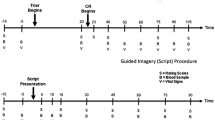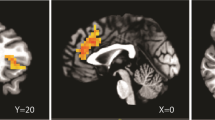Abstract
Rationale. Associations between several psychopathological alterations and lowered β-endorphin(βE) plasma levels have already been stated in former studies. However, whereas single measures during static conditions generally failed in linking βE levels with psychopathology, dynamic changes of βE in particular have been shown to be associated with spells of anxiety and depression. During alcohol withdrawal, a decreased secretion of βE with a delayed normalization has been reported, but up to now only few data became available regarding the interaction of plasma βE and psychopathological parameters.
Objectives. The aim of our study was to test the hypothesis whether βE during acute alcohol withdrawal is associated with anxiety, depression, and craving.
Methods. We observed self-rated anxiety, depression, and craving during alcohol withdrawal and assessed βE levels (RIA) in a consecutive sample of 60 alcoholics on day 1 and day 14 after onset of withdrawal, and in 30 healthy volunteers. To control for mutual interactions of βE and the pituitary–adrenocortical hormone secretion, plasma corticotropin (ACTH) and cortisol were also determined.
Results. In accordance with prior studies, βE was significantly lowered on day 1 and day 14 of alcohol withdrawal relative to controls. Plasma levels of ACTH correlated significantly with βE in alcoholics at both time points and in controls, without differing significantly between the groups. Self-rated anxiety, depression, and alcohol craving decreased significantly between day 1 and day 14. Levels of βE were inversely correlated with anxiety day 1 (r=–0.58) and day 14 (r=–0.71). Partial correlation coefficients controlling for ACTH plasma levels revealed that this correlation was largely independent from ACTH. In addition, a significant inverse relationship was found between βE and craving on day 14 (r=–0.28). No association appeared between βE and depression.
Conclusions. Our results give first evidence that lowered βE during alcohol withdrawal may contribute to anxiety as a common disturbance during this state.
Similar content being viewed by others
Author information
Authors and Affiliations
Additional information
Electronic Publication
Rights and permissions
About this article
Cite this article
Kiefer, F., Horntrich, M., Jahn, H. et al. Is withdrawal-induced anxiety in alcoholism based on β-endorphin deficiency?. Psychopharmacology 162, 433–437 (2002). https://doi.org/10.1007/s00213-002-1118-y
Received:
Accepted:
Published:
Issue Date:
DOI: https://doi.org/10.1007/s00213-002-1118-y




